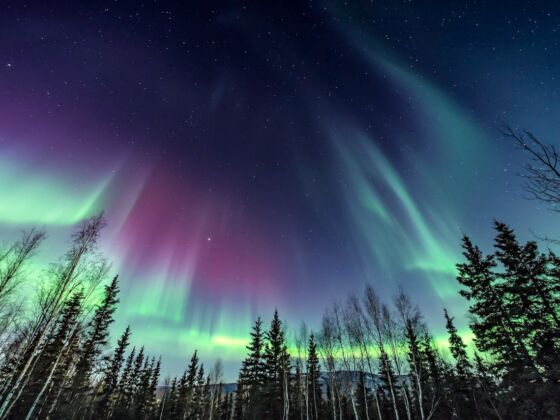One of the strangest stories to come out of the tourist towns of Alaska is that visitors from Japan, who visit by the thousands every winter, believe that it is good luck to conceive a baby under the Aurora Borealis.
As one local guide in Fairbanks, Alaska told to the New York Times in 2007: “One explanation says they want to conceive under the northern lights, so they’re more likely to have a boy. Another version was for a gifted child. There’s also supposed to be a belief the child will be well off.”
